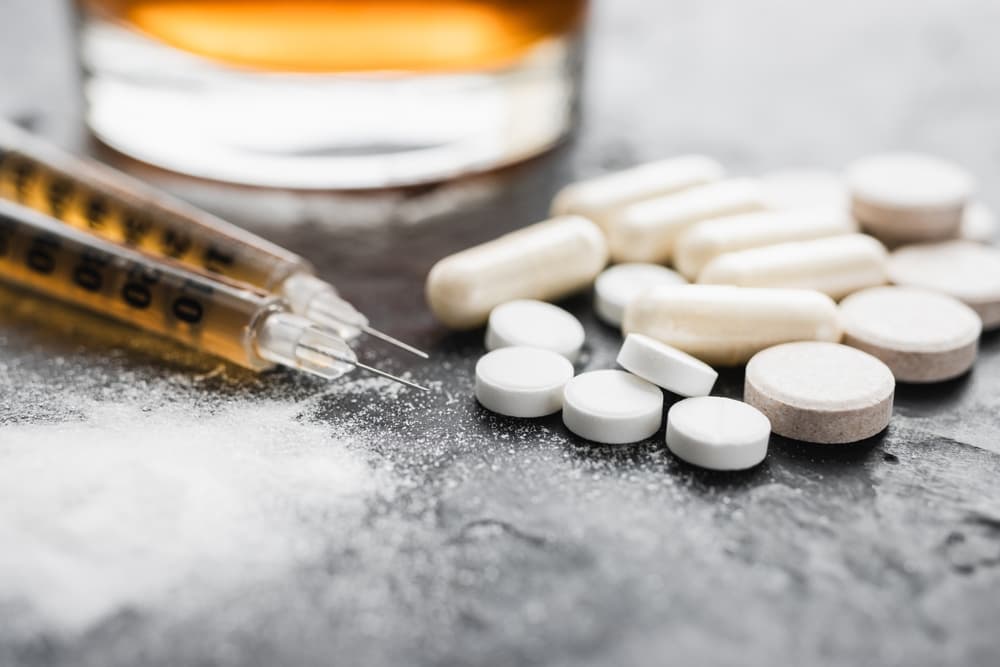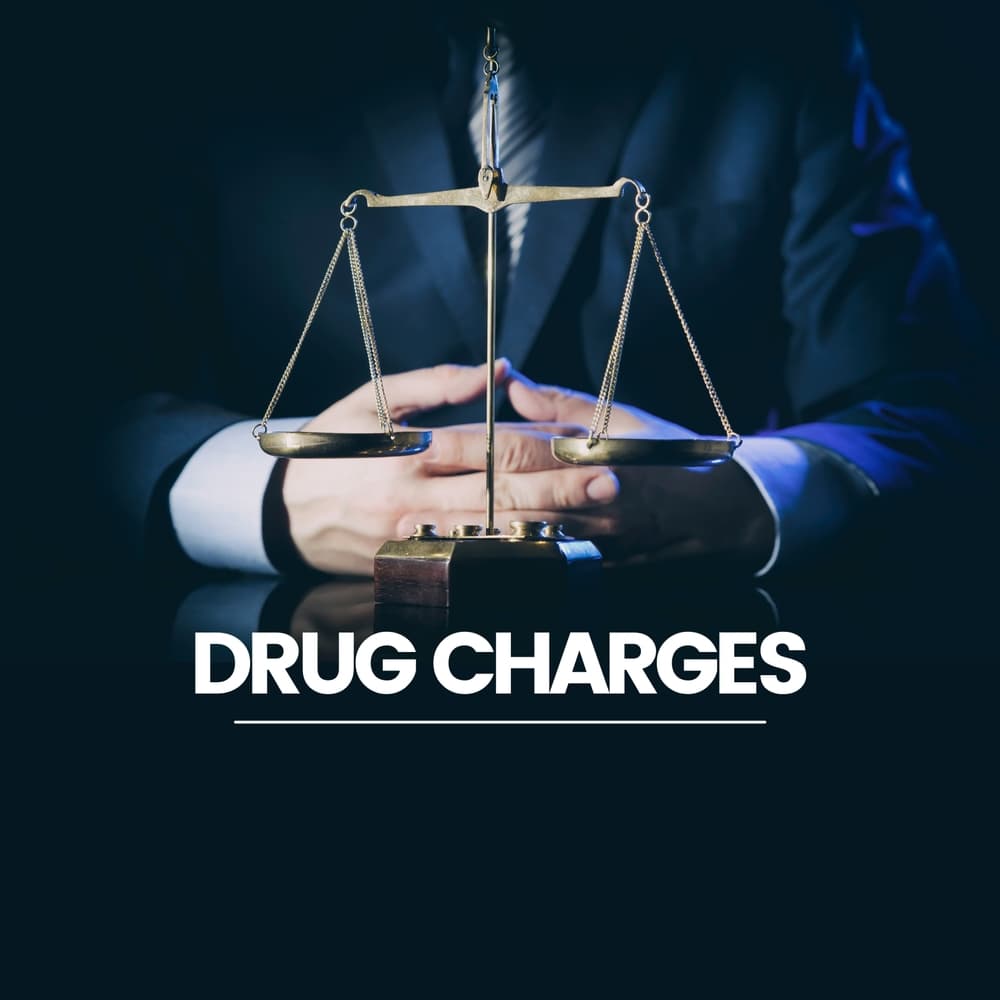Drug manufacturing charges refer to allegations of producing illegal substances, such as methamphetamine, cocaine, or synthetic drugs. These charges can carry severe penalties, including lengthy prison sentences and hefty fines. Retaining an experienced criminal defense lawyer is important as they can evaluate the evidence, build a strong defense, and negotiate plea deals when appropriate.
A skilled Greenville, SC drug crimes attorney understands the complexities of drug laws and can protect your rights throughout the legal process, increasing your chances of a favorable case outcome.
Common Types of Drug Manufacturing Charges

Drug manufacturing crimes encompass a range of illegal activities related to the production of controlled substances. State prosecutors often charge individuals with these offenses based on the nature and quantity of the drugs involved, as well as the methods used in their production. The following are some of the most common categories of drug manufacturing crimes:
- Cultivation of Marijuana – One of the most frequently prosecuted drug manufacturing offenses is the cultivation of marijuana. Many states have varying laws regarding the legality of growing cannabis, especially for medical or recreational use. However, growing marijuana beyond permitted limits or without the necessary licenses can lead to serious felony charges.
- Manufacturing of Synthetic Drugs – The production of synthetic drugs, such as synthetic cannabinoids (often referred to as “Spice”) or synthetic opioids (like fentanyl), is another significant area of concern. Prosecutors may charge individuals with manufacturing if they are found creating or distributing these substances, especially due to their high potency and potential for abuse.
- Production of Illegal Drugs – This category includes the manufacture of hard drugs such as methamphetamine, cocaine, or heroin. State laws are particularly stringent regarding meth production, often leading to severe penalties. Law enforcement typically targets meth labs, and the discovery of such operations can result in multiple charges against individuals involved.
- Possession of Manufacturing Equipment – In some jurisdictions, possessing equipment specifically designed for drug manufacturing, even if no drugs are found, can lead to charges. This equipment includes items like glassware, heating elements, and other paraphernalia typically associated with drug production.
- Conspiracy to Manufacture Drugs – Individuals can be charged with conspiracy if they are found to have planned or agreed to manufacture drugs, even if the manufacturing has not yet occurred, which can include discussions about drug production or attempts to acquire materials for manufacturing purposes.
- Endangerment Crimes – Drug manufacturing, particularly in residential areas, can lead to additional charges related to endangering public safety. For example, methamphetamine production can release toxic fumes or pose fire hazards, leading to charges that consider the safety of surrounding individuals and properties.
State prosecutors approach drug manufacturing crimes seriously, often pursuing aggressive penalties, including significant fines and lengthy prison sentences.
Potential Penalties and Collateral Consequences of a Drug Manufacturing Conviction

A drug manufacturing conviction can lead to serious legal penalties and collateral consequences that significantly affect an individual’s life. The specific penalties depend on factors like the type of drug, the amount produced, and the jurisdiction where the crime occurred. The following are some common legal penalties and collateral consequences associated with drug manufacturing convictions.
Legal Penalties
- Prison Time – One of the most severe penalties for drug manufacturing is imprisonment. Sentences can range from a few years to several decades, especially for serious offenses like manufacturing methamphetamine or other hard drugs. In some cases, first-time offenders may receive lighter sentences, but repeat offenders typically face harsher penalties.
- Fines – In addition to prison time, individuals convicted of drug manufacturing may be ordered to pay substantial fines. These fines can range from thousands to hundreds of thousands of dollars, depending on the nature of the crime and the amount of drugs involved. Fines are intended to serve as a deterrent against future offenses.
- Probation – Instead of, or in addition to, prison time, a judge may impose probation. During probation, individuals must comply with specific conditions, such as regular drug testing, attending rehabilitation programs, and meeting with a probation officer. Violating probation terms can result in imprisonment.
- Forfeiture of Property – Individuals convicted of drug manufacturing may also face forfeiture of property used in the drug production process, including vehicles, equipment, and even real estate. Law enforcement agencies can seize assets believed to be connected to drug-related activities.
Collateral Consequences
- Employment Challenges – A drug manufacturing conviction can make finding employment difficult. Many employers conduct background checks and may be unwilling to hire someone with a felony record, which can limit job opportunities and lead to long-term financial instability.
- Loss of Professional Licenses – Individuals in certain professions may lose their licenses or certifications following a drug manufacturing conviction, which can affect careers in fields like healthcare, education, and law enforcement, making it challenging to return to these professions.
- Housing Difficulties – Many landlords conduct background checks and may refuse to rent to individuals with felony convictions, leading to challenges in securing stable housing, thereby forcing individuals into less desirable living situations.
- Social Stigma – A conviction can result in social stigma, affecting personal relationships and community standing. The consequences can lead to isolation and mental health challenges.
Defending Against a Charge of Drug Manufacturing
When facing drug manufacturing charges, having a robust legal defense is vital for achieving the best possible outcome. Various defenses can be employed depending on the specifics of the case, but some of the most important legal defenses to consider include the following:
- Lack of Knowledge – One of the most effective defenses is demonstrating a lack of knowledge regarding the drug manufacturing activity. If the accused can prove that they were unaware of the drugs being produced or the illegal nature of the operation, they can avoid liability. This defense is particularly relevant in situations where someone else was operating the drug lab without the accused’s consent or knowledge.
- Illegal Search and Seizure – The Fourth Amendment protects individuals from unreasonable searches and seizures. If law enforcement conducts a search without a proper warrant or probable cause, any evidence obtained may be deemed inadmissible in court. A skilled lawyer can challenge the legality of the search, arguing that the evidence collected during the illegal search should be suppressed, potentially weakening the prosecution’s case.
- Entrapment – Entrapment occurs when law enforcement induces or coerces an individual to commit a crime they would not have otherwise committed. If the accused (defendant) can demonstrate that they were pressured or manipulated into engaging in drug manufacturing activities by undercover officers or informants, they may successfully argue entrapment as a defense, which can highlight the unethical conduct of law enforcement and potentially lead to the dismissal of the charges.
- Insufficient Evidence – The prosecution must prove beyond a reasonable doubt that the accused manufactured drugs. If the defense can show that the evidence is circumstantial or insufficient to establish guilt, the charges may be reduced or dismissed. Establishing insufficient evidence may include questioning the credibility of witnesses, challenging forensic evidence, or arguing that the amount of drugs involved does not meet the legal threshold for manufacturing.
- Mistaken Identity – In some cases, a defendant may assert that they were mistakenly identified as the individual involved in the drug manufacturing operation. This defense can be particularly effective if there is no direct evidence linking the accused to the crime, such as fingerprints, photographs, or eyewitness testimony. The defense can present an alibi or evidence that places the accused elsewhere during the alleged manufacturing.
Developing an effective legal defense against drug manufacturing charges requires a thorough understanding of the law, the specific facts of the case, and the ability to challenge the prosecution’s evidence. Engaging a knowledgeable criminal defense attorney can significantly enhance the chances of a favorable outcome.
How Can a Drug Defense Lawyer Help with Your Case?

If you are facing drug manufacturing charges, enlisting the help of a skilled criminal defense lawyer can be valuable to your case. An experienced attorney brings a wealth of knowledge and skills that can significantly affect the outcome of your situation. The following are several ways a criminal defense lawyer can assist you:
- Case Evaluation – A skilled attorney will thoroughly evaluate your case to understand the specifics, including the evidence against you, the circumstances surrounding your arrest, and any possible defenses. They will analyze police reports, witness statements, and forensic evidence to identify weaknesses in the prosecution’s case. This evaluation helps formulate a strong defense strategy tailored to your unique situation.
- Legal Representation – Your lawyer will represent you throughout the legal process, ensuring that your rights are protected at every stage. They will communicate with law enforcement, prosecutors, and the court on your behalf, preventing you from inadvertently making statements that can harm your case. Their presence can provide you with reassurance and guidance during a stressful and intimidating process.
- Negotiating Plea Deals – In some cases, your attorney may negotiate with the prosecution for a plea deal. A plea deal can involve pleading guilty to a lesser charge in exchange for a reduced sentence or other leniencies. A knowledgeable lawyer understands the intricacies of plea bargaining and can advocate for the best possible outcome based on the specifics of your case.
- Challenging Evidence – A critical part of defending against drug manufacturing charges is challenging the evidence the prosecution presents. Your attorney can file motions to suppress evidence obtained through illegal searches or seizures, potentially leading to the dismissal of key evidence. They may also question the reliability of forensic evidence or the credibility of witnesses, further weakening the prosecution’s case.
- Providing Expert Witnesses – In complex drug manufacturing cases, your lawyer may enlist the help of expert witnesses who can provide valuable insights or testimony. These experts can help explain to the court the technical aspects of the case, such as the manufacturing process or the legality of certain substances, thereby providing a more comprehensive understanding of the situation.
A knowledgeable criminal defense attorney plays a vital role in navigating drug manufacturing charges. Their experience in the law, combined with their commitment to your case, can lead to a more favorable outcome, whether through dismissal, reduced charges, or a successful defense at trial. Engaging an attorney can significantly enhance your chances of achieving the best possible result in a challenging legal situation.
What Is a Plea Deal Versus a Trial on a Drug Manufacturing Charge?
When facing drug manufacturing charges, defendants often grapple with the decision between accepting a plea deal or going to trial. Both options have distinct implications, and understanding them can help you make an informed choice.
Plea Deal
A plea deal, or plea bargain, is an agreement between the defendant and the prosecution in which the defendant agrees to plead guilty to a lesser charge or receive a reduced sentence in exchange for waiving the right to a trial. For example, if you are charged with a serious drug manufacturing offense, the prosecution may offer to reduce the charge to possession with intent to distribute, which typically carries a lighter penalty. Potential advantages of a plea deal include:
- Reduced Sentencing – A plea deal often results in a lighter sentence than what may be imposed if found guilty at trial.
- Certainty – Pleading guilty provides a definite outcome, avoiding the uncertainty of a trial where the jury can impose a harsher penalty.
- Quicker Resolution – Accepting a plea deal can lead to a faster resolution of the case, allowing you to move on with your life sooner.
Potential disadvantages of a plea deal include:
- Admission of Guilt – Accepting a plea deal means you are admitting guilt, which can have long-term consequences, including affecting future employment opportunities.
- Limited Appeal Options – Once you plead guilty, your ability to appeal the decision is significantly restricted.
Trial
Going to trial means that you contest the charges in front of a judge and jury. During a trial, both the prosecution and defense present evidence, call witnesses and make arguments. The jury then decides your guilt or innocence.
Potential advantages of a trial include:
- Possibility of Acquittal – A trial gives you the opportunity to prove your innocence, potentially leading to an acquittal if the prosecution cannot meet the burden of proof.
- Control Over the Process – You have more control over your defense strategy and can challenge the prosecution’s evidence.
Potential disadvantages of a trial include:
- Risk of Severe Penalties – If found guilty at trial, you may face harsher penalties than those offered in a plea deal.
- Time and Stress: Trials can be lengthy and stressful, often taking months to prepare and resulting in a prolonged legal process.
Deciding between a plea deal and a trial requires careful consideration of several factors, including the strength of the evidence against you, the potential penalties, your personal circumstances, and the advice of your attorney. A knowledgeable criminal defense lawyer can clarify the best course of action based on your unique situation.
Contact an Experienced Criminal Defense Attorney Today
If you are currently facing a drug manufacturing charge, you need an experienced criminal defense lawyer in your corner as quickly as possible. Your lawyer will handle every step of the criminal case for you and work to secure the best possible result – either through a favorable plea deal with a state prosecutor or a favorable result at trial.
